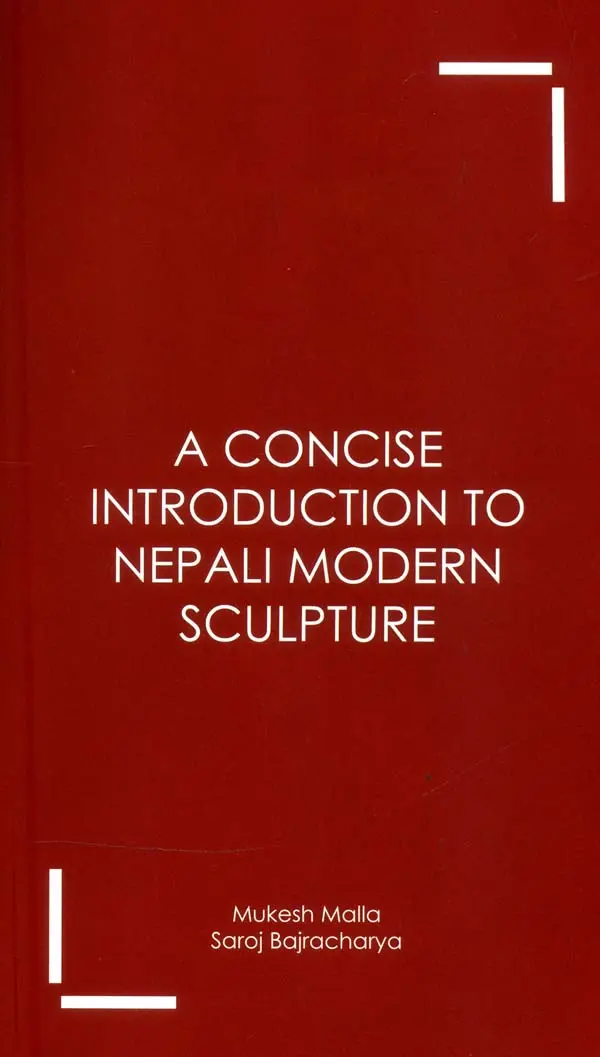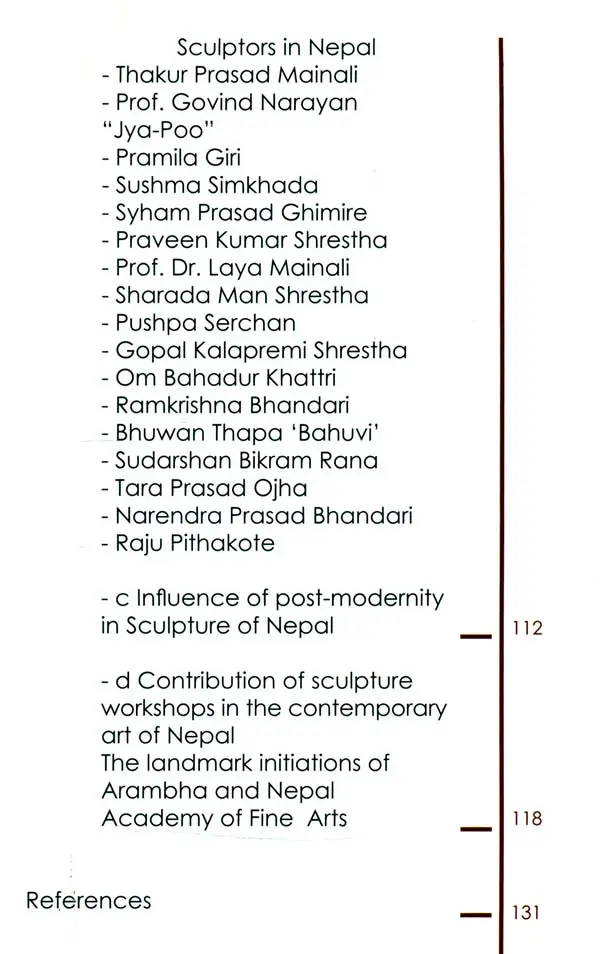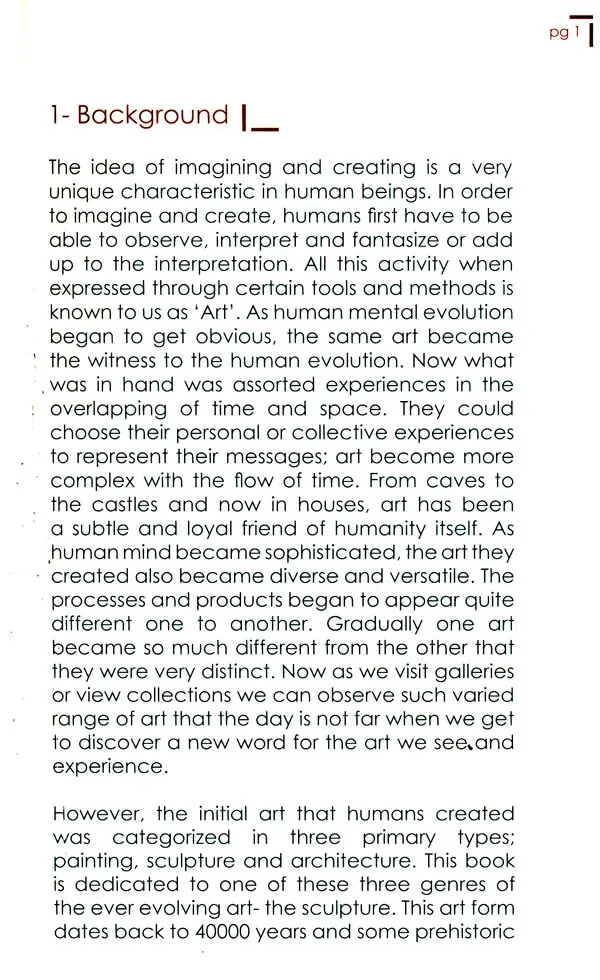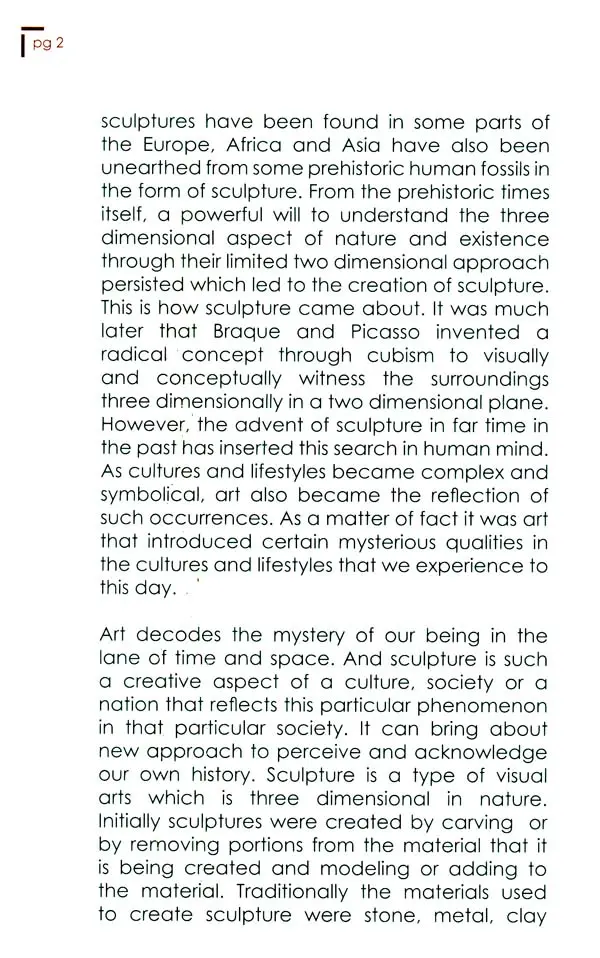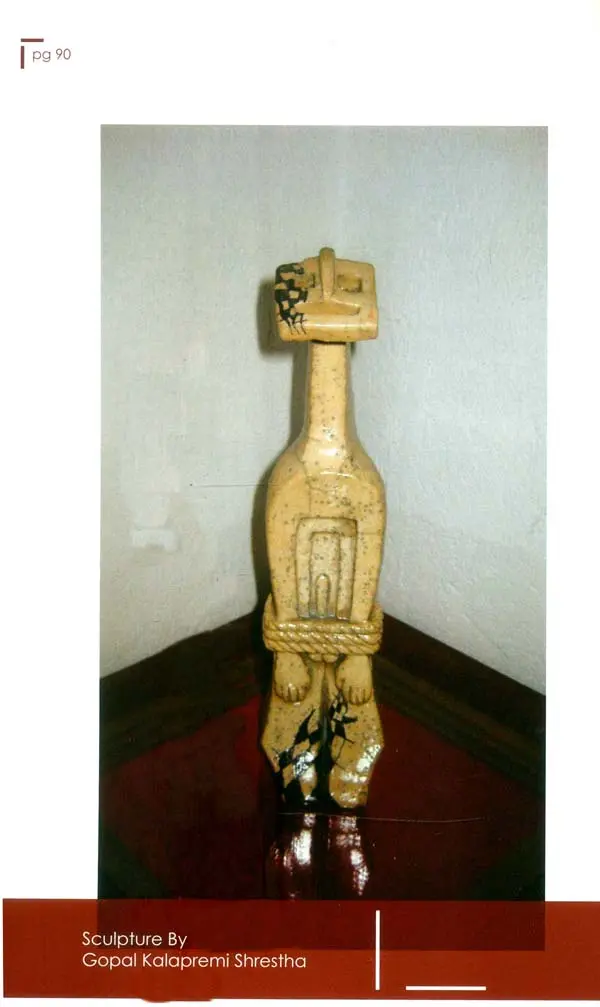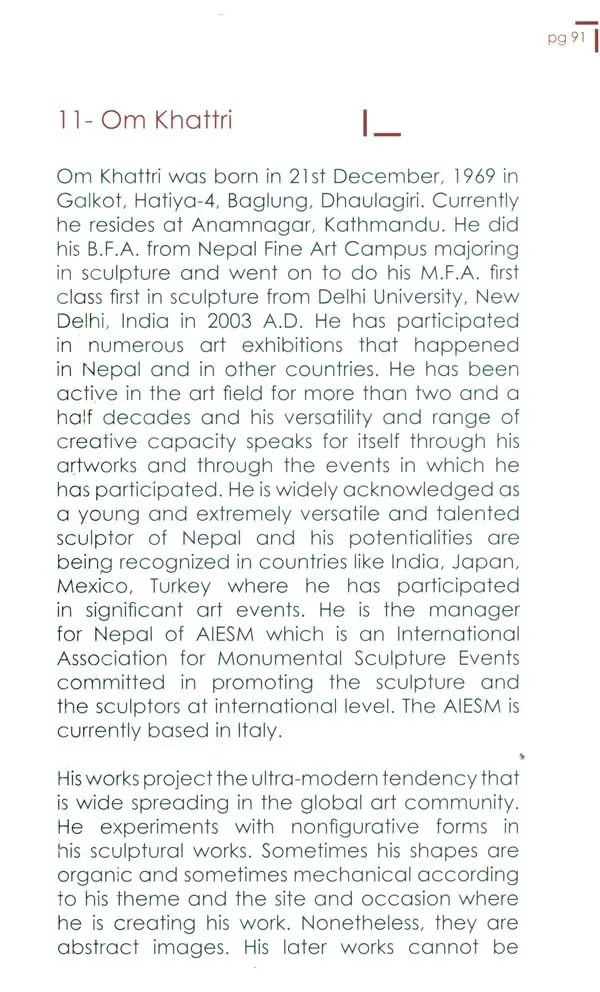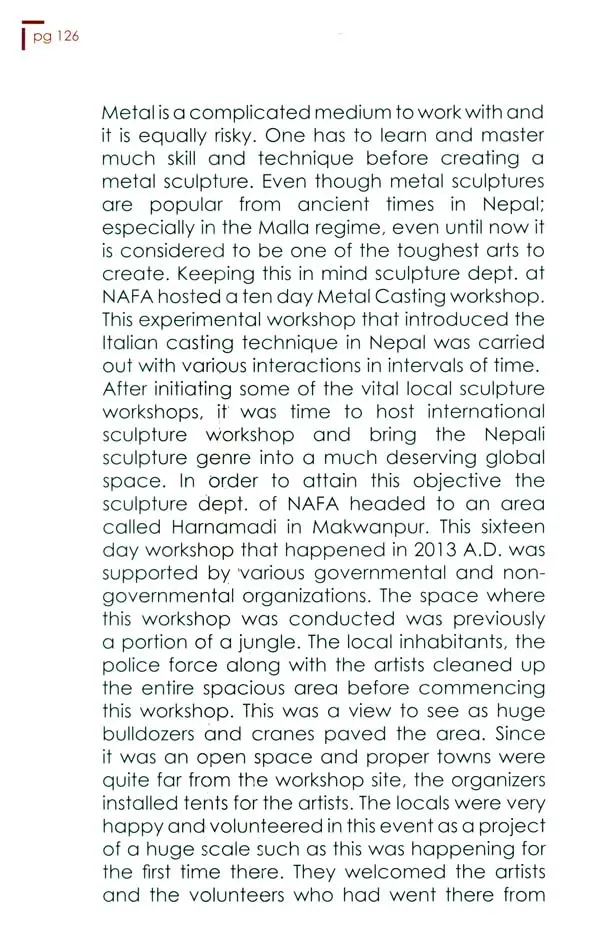
A Concise Introduction to Nepali Modern Sculpture
Book Specification
| Item Code: | UAG694 |
| Author: | Mukesh Malla and Saroj Bajracharya |
| Publisher: | Nepal Academy of Fine Arts |
| Language: | English |
| Edition: | 2014 |
| ISBN: | 9789937885485 |
| Pages: | 142 (Throughout Color Illustrations) |
| Cover: | PAPERBACK |
| Other Details | 8.50 X 5.50 inch |
| Weight | 300 gm |
Book Description
Saroj Bajracharya is an Artist and Art writer. He has been active in the art field for more than two decades. He has been actively involved in many facets of art including painting, writing, teaching, curating, organizing and coordinating art events and exhibitions.
Writing on Nepali art the negligible and in the field of Nepali sculptures the writings are even less. This book is therefore and attempts to link the traditional as well as modern sculpture. This book is also an endeavor to strengthen the foundation of Nepali sculpture by providing its brief introduction. Thus, I firmly believe this book will serve well as a resource for future researchers, nationally and internationally.
This book will also help understand about the Nepali sculptors to the general public. The importance of this book is further augmented by the fact that the writer duo are themselves accomplished artists and art writers with a long and extensive experience in the art field. Hence, this book is a milestone in fulfilling the deficient in Nepali art writing.
[firmly believe that this book will serve as a valuable resource to the future researches on the Nepali modern sculpture. This book in my opinion will also provide a platform to felicitate artists dedicated to this body of art and give them their much deserved credit for which I extend heartfelt gratitude to the writer duo.
This book is concentrated on the Nepali modern sculptors. However, in order to elaborate the modern scenario it is necessary to understand the qualities and attributions of the pre modern phase of Nepali sculptures. In this regard this book has attempted to shed light on the brief introduction to sculptures from Malia era subsequently connecting it to the pre-modern era with the development of trend and qualities of statue in Nepal. We have categorized the phase of statue as two separate turning points in order to clearly bring forth the creative advancements. Furthermore, the book also attempts to chronologically show the turning point in Nepali sculpture; the Europe visit of the then Prime Minister Jung Bahadur Rana and its effect on the Nepali sculpture scene.
This book has attempted to bring to the fore the ground of modern sculpture of Nepal by categorizing it into pre modern phase, modern phase and the influence of post modern tendency in the advancement of Nepali sculpture. In order to represent these developments we have tried to outline some of the significant sculptors of Nepal who have defined end shaped the modern sculpture scenario of Nepal.
We wo.uld like to thank the experts who have helped us to bring out this book. Equally, we are deeply grateful towards Mr. Kiran Manandhar, the Chancellor of Nepal Academy of Fine Arts for his positive thoughts and encouragement. We are gratified to have expert opinions and suggestions from Mr. Thakur Prasad Mainali, the Vice-Chancellor of Nepal Academy of Fine Arts.
We would like to thank Mr. Om Khattri, Council Member and head of Sculpture Department of Nepal Academy of Fine Arts for taking initiation to commence this research, providing us with an opportunity to be a part of it and consenting to publish this book.
Last but not the least we would like to thank all the helping hands who have helped us to bring this book into reality.
Book's Contents and Sample Pages
